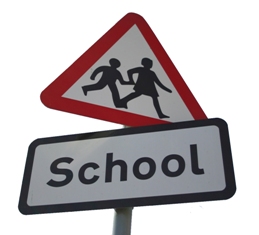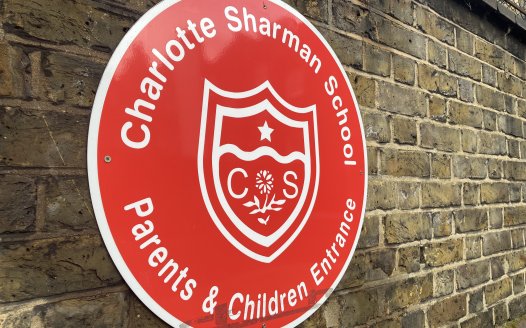Why was the Church of England allowed to influence the direction of our local secular schools?
Posted: Mon, 9th Nov 2020 by Chris Leng
The church was given a key role on the board of our local multi-academy trust – even though there were no faith schools in it. Chris Leng questions the assumptions which lay behind this arrangement.
Our child started at our local school in 2016, not long after our family moved to the village in the Yorkshire Wolds. The school is excellent, a lovely community school at the heart of the community with committed staff (and parents). Though many of the nearby schools are faith schools, in 2017 our school along with other non-religious community schools formed the Wolds Learning Partnership, a small multi-academy trust, which purported to retain the constituent schools' community ethos.
However, when my child started in Reception I became aware of how often the local C of E vicar featured in the weekly school newsletter. There were regular references to visits from 'Reverend Fran', particularly at times of Christian significance but many other times as well – assemblies and 'fun days'. This surprised me, but I roughly accepted that the local vicar might feature in the life of the village's only school from time to time. Nothing to get exercised about, I told myself.
In 2017, I read that 'The Prayer Bus' had visited the school. Reference was made in the school newsletter to children playing with 'sorry sand' and 'fuzzy forgiveness'. This prompted me to have my first conversation with the school. I asked why kids of primary school age had been encouraged to take part in an activity which introduced them to the idea that young children might wish to 'atone' for their sins. The (then) headteacher assured me that she understood my concerns and undertook to notify parents of any further visits, the nature of the activities, and a note that parents were within their rights to refuse permission for their child to take part.
I joined the governing body as a parent governor in 2018, and have been a committed member ever since. I was unaware that, unlike schools in local authority control, the MAT (multi-academy trust) board has responsibility for setting the strategic direction of the trust, and for the governance of its schools. It issues only delegated powers to the governors of each individual school. MATs are private organisations rather than being accountable to parents and local communities. We have no say in the membership of MATs, leaving us with little say in the strategic direction of our kids' schools.
But the biggest surprise was that (despite none of the schools in Wolds Learning Partnership being faith schools) a key player on the board of WLP is the Diocese of York Educational Trust (DYET). DYET has a privileged position in the MAT. The articles of association enshrine it within the trust, and give it a right of veto on the appointment of new members.
DYET's website boldly says "it's only right that there is a Church of England presence within the range of academies nationally". It states its commitment to ensuring young people "understand the significance of faith". The diocese's goals on its website are more explicit and include "reaching those we currently don't", "growing in numbers, discipleship and influence" and that it will "seek God's will in pursuing these goals".
Why is it 'only right' that a religious institution should play a key part in the running of such a MAT? Why should the Church of England have strategic influence over my son's school, when it is a community school, as are all of the other schools in the MAT?
I raised the matter with the chair of the trust whose knowledge and wealth of experience within the education sector had impressed me. He informed me that when the trust was set up it was hoped that a number of C of E schools would join. To encourage them to do so, the diocese was involved. The trust adopted the C of E standard articles of association. By his and the trust's own admission, there was no reasonable prospect of a faith school joining the MAT in the foreseeable future.
In September 2019 I was informed that the trust's board (including diocesan appointees) had voted "unanimously in favour of retaining our articles which are the least reflective of church influence available", apparently unaware that 'no influence' is a sound, alternative option – and is available. The trust also claimed, despite the diocese's own statements, that the diocese is "not in the business of promoting a faith".
I was not satisfied with this response so in October 2019 raised a formal complaint asking why a religious institution was being given this influence over the direction of a secular organisation.
In January 2020 I received a hostile written response which recognised that "DYET appears to have enhanced rights within the constitutional documents" and said "the trust continues to seek an appropriate resolution to your concern about diocese involvement whilst having no church schools yet within the MAT".
The trust conceded "Whilst acknowledging that your complaint is justified and must be upheld, the members regret that you felt any complaint was necessary in the first place". They went on to threaten a formal complaint – against me!
I also raised the diocese's involvement with the trust with the Education and Skills Funding Agency. But the agency declined to take it forward, on the grounds that I had "not exhausted the trust's complaints procedure". The trust's letter claiming that "(the members) have determined that this issue is now closed" was perversely not – according to the ESFA – evidence that the grievance was resolved.
The saga reinforces my belief that the Church of England considers that it has an inalienable right to privileged influence over our children's education. As both its reputation and congregation numbers continue to fall, it nonetheless wishes to keep its foot in the door of our schools as part of its attempt to arrest the retreat.
But the story has a more encouraging conclusion. The WLP board has confirmed that following lobbying, the trust has opted to transition to a community articles model and any appointees by the diocese will resign when the new articles are confirmed. But even then, the trust's board minutes said the diocese "requires input" into the drafting of the articles of association. And at the time of writing, some six months after the diocese agreed to leave, the process has not yet been completed due to "certain legal and confidential matters".
However, the fact that the diocese has agreed to leave this wholly non-denominational multi-academy trust is evidence that some progress is being made – perhaps pushing back can work.
A shortened version of this story appeared in our 2020 report Power grab: Academisation and the threat to secular education.
While you're here
Our news and opinion content is an important part of our campaigns work. Many articles involve a lot of research by our campaigns team. If you value this output, please consider supporting us today.








